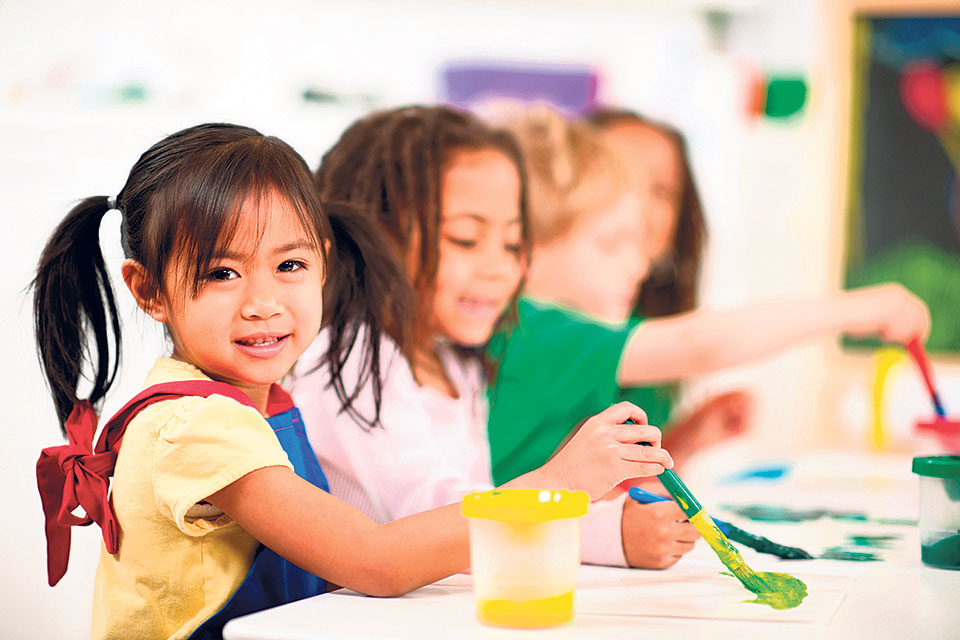
This is the school admission month in Nepal. Thousands of children have already secured their seats in the schools. But there are several thousand others who are unable to get admission in a good school. As I am ending my ninth grade this year, I feel that I am one of the lucky ones to get this extraordinary opportunity. However, I am increasingly concerned that those of us able to go to school are focusing too much on how to compete with one another rather than learning how to cooperate. I am wondering what should our schools teach us - competition or cooperation?
In school, we don’t focus on learning, but instead look for the answers to the list of questions asked in the book. No one would think about the details of the reading; everyone just tries to finish the assignment. When we see our grades, we would either be relieved or angry. None of us ever feels happy about what we have learnt in classrooms; we just feel we have made good achievement if we did well on grades. It’s becoming obsessive and I wonder what’s the meaning of school education; is it only about good grades or there is something more important that we are missing completely?
As I transitioned to high school in 2017, I expected a big change in my thinking, with many different subjects to learn, and with many different types of people to interact with. However, the experience didn’t change much from my mentality in middle school - worrying about grades. So far, everything has been about getting best grades. Since my first grade, I have been taught that success is all about winning, and I must always compete with everyone else.
With college in the near future, I feel that I need to focus more on the points I score on an assignment than what I learned from it. When preparing to go to school or studying for a test, I often find myself stressed and anxious. After taking a test, I barely have time to process the material I just learned before studying for the next one. All of my friends in school feel the same.
When I know that my grades are better than others, or when I compete with others and win I feel successful. Our goal has been to compete against each others to reach the ‘top’. This has been the case even though research shows that with all of this competition, teenagers experience stress levels higher than adults, to a point where it is unhealthy both mentally and physically. This results in behaviors such as less sleeping, less exercise, and overreacting which in turn, leads to more stress.
Our society is experiencing all kinds of problems, for which we need to cooperate and work together to come up with solutions. However, we are taught to compete and be happy when we win or do better than others. Are we heading in the wrong direction?
These competitions cycle around again and again and there is no room to think about cooperation and collaborative learning that may eventually increase our happiness and wellbeing. We become so busy thinking about our self and we do not think about doing things differently, and we still feel good and achieved. Why should education be about winning? Is it possible to win collectively? If so, why don’t we ever learn these things in school?
What we hear from adults “stay busy”, “focus on the future”, and “aim for the top”, it doesn’t always help. My fear is that it leaves us with less motivation, less energy, and more stress. I have constantly been told that the world is a competitive place, and that without maximum effort and the best grades, I will find it much more difficult to find success and happiness in the future. Major things are accomplished when many people work together, but school doesn’t prepare us for that.
Schools should start teaching collaboration, cooperation, collective wellbeing and happiness if we want to produce future generations with care, empathy and wisdom. By encouraging cooperation and reflection, teachers can help their students to prepare them as resilient and socially responsible members of the society.
As the Buddha said, “Thousands of candles can be lighted from a single candle, and the life of the candle will not be shortened. Happiness never decreases by being shared.” If one candle can light thousands, then many candles together can light millions. If we worked together, we could bring happiness to others and accomplish more.
Perhaps instead of emphasizing on grades and numbers, and pushing those who are already ahead farther, the education system can emphasize on improvements in society and think about the overall wellbeing of everyone. We need a different vision of life that is regenerative rather than destructive, which can only come from real education not competition.


Leave A Comment